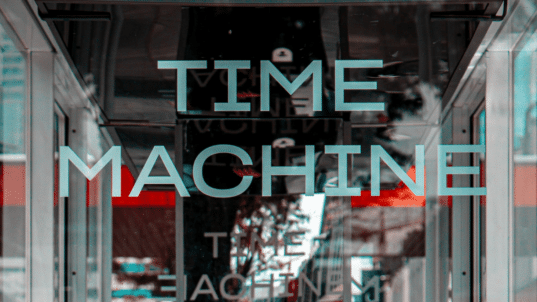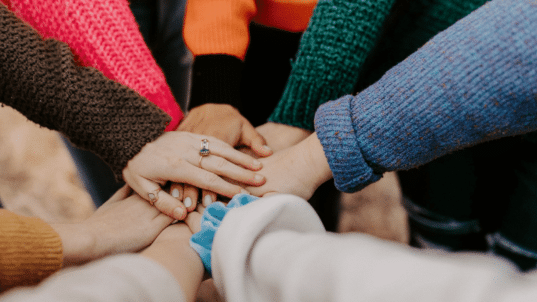Practicing “yes, and…”
Dear collaborative discussion friends,
This time we are highlighting an activity that is designed to help groups establish a more collaborative (and less competitive) atmosphere through building on the ideas of others. This activity encourages participants to suspend critical analysis and lean into active listening by affirming what is heard and creatively adding to the discussion.
Inspired by the improv technique of “yes, and…,” this activity can be found in the Creative Collaboration Module. Developed by Don Waisanen, Professor of Communication at Baruch College, this activity offers an entry point into his more developed work on improv-based teaching and training methods to improve communication, leadership, and civic skills. To learn more, check out his publication Improv for Democracy (2020).
If you missed the previous newsletter on Setting the Stage for Collaborative Discussion, you can access it and our other weekly highlights by subscribing below.
This week’s activity:
Activity 2.6 – Building on the Ideas of Others
How do you normalize “yes, and…” as a constructive response in a discussion group?
We have all had the frustrating experience of sharing a thought with someone, only to have it negated with a “yes, but…” response. It leaves you feeling like your idea wasn’t heard and, possibly, replaced by a competing idea. Discussions can often feel like competitions. We try to demonstrate our own intelligence by exploiting the weaknesses and internal contradictions of others. We feel smarter when we have the winning idea. This competitive way of engagement reduces the worth of a discussion to the single most valuable (or loudest) statement. It can also have the effect of distancing us from others. Alternatively, collaborative discussions encourage us to move beyond our fragile egos and toward the more collective endeavor of thinking with others. Such discussions can foster better ideas and leave discussants with a deeper appreciation and understanding of others.
Like all of our toolkit activities, the skill of building on the ideas of others develops over time and with practice. We recommend introducing this practice to your discussion group in a playful way. This could even be a warm-up activity. The trick is to model and remind discussants of the power of “yes, and…” throughout your time together.
Begin this activity by placing group members into pairs. Ask them to pretend that they are planning a vacation together. One person makes a suggestion and the other person responds with, “yes, but…” Continue with this process for 2 minutes. Debrief as a full group: How is your vacation planning going? What was hard about planning it? Are you excited about going on vacation?
Then place the participants in pairs again (the same or new set of pairs). Ask them to try again to plan a vacation together, but this time practice saying “yes, and…” No matter what your partner says, figure out how to confirm it and build upon it. Continue this process for 2 minutes. Debrief as a full group: Now, are you excited for your vacation? How did planning this trip feel different from the previous effort? How can we bring this energy and sense of fun into our more serious conversations?
After this initial introduction to the practice of saying “yes, and…,” you can then move into a more serious discussion relevant to your group. Throughout the discussion, model this practice and encourage discussants to build on the ideas that are generated in the discussion. You will want to pause when necessary and explain how discussants can find the “nuggets of truth” or amplify a key component of a contribution without having to fully agree or confirm a statement that they find to be untrue. This technique is improved through practice. The activity also includes debriefing and reflection questions.
If you try out these activities, please share with us what you think:
We hope these quick introductions to our toolkit activities are helpful. In our upcoming newsletters we will be highlighting how to use metaphors as a way to enhance or “unstick” a discussion group. We will also be highlighting activities that encourage us to take a deeper look at how values and the ordering of values play out in our discussion experiences.
Upcoming Events
- We are accepting applications for our next Collaborative Discussion Coach Training (May 31 – June 6). This training is open to anyone interested in offering certificate programs in the future. You can apply here or share this newsletter with people you think might be interested.
- We are also accepting nominations for our Pilot Coach Training for Undergraduate Students. Space will be limited. You can learn more or nominate a student by emailing me at [email protected]
Looking forward to collaborating with you this year,
Shannon Wheatley Hartman & the Collaborative Discussion Team





